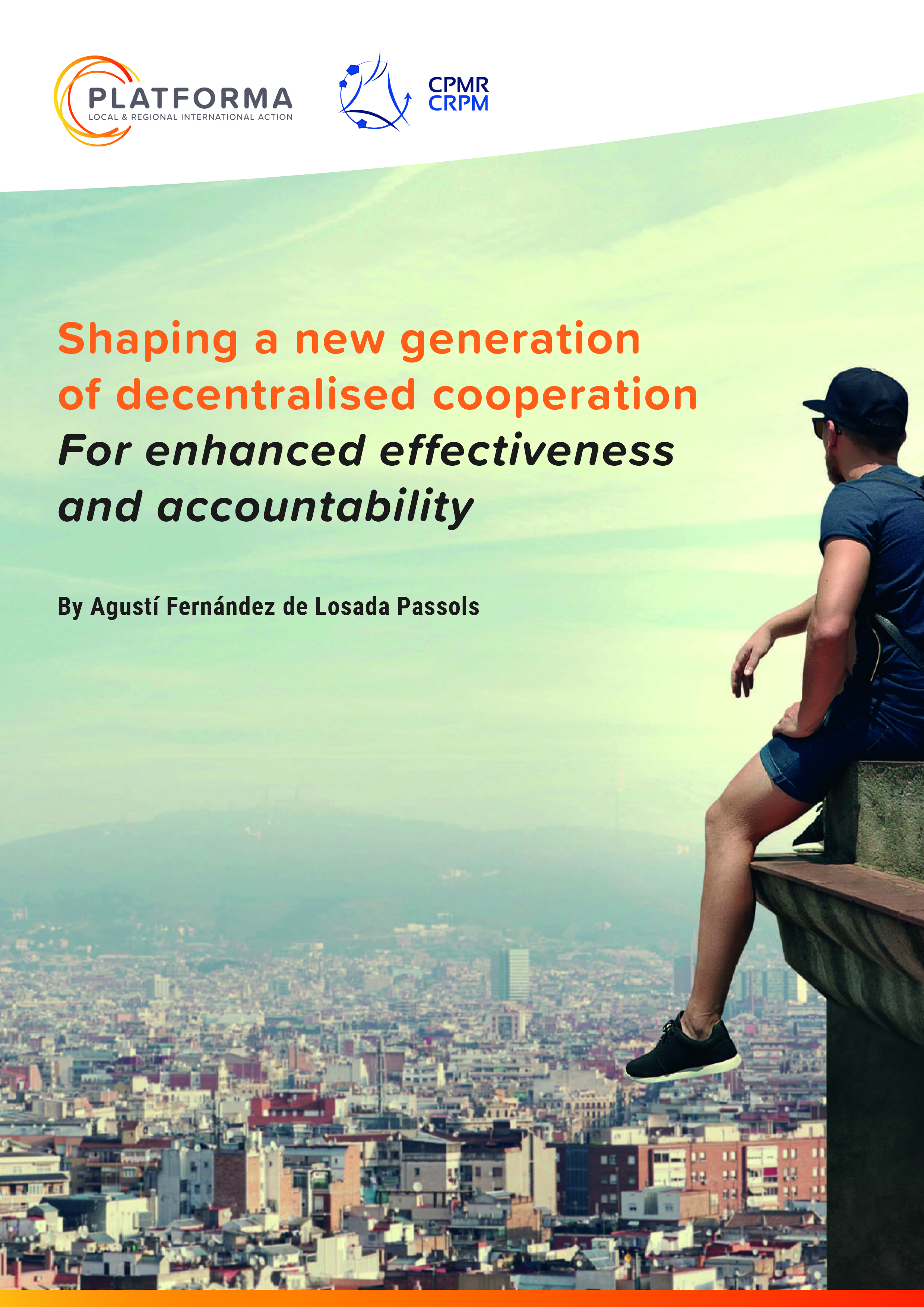New study: towards more effective and accountable partnerships
New trends in decentralised cooperation offer a major opportunity for local and regional governments (LRGs) and communities to jointly develop innovative approaches to improving people’s lives. The UN 2030 Agenda for Sustainable Development and the development effectiveness principles adopted in Busan are the roadmap for these new partnerships.
These are the key messages presented in a new Study ‘Shaping a new generation of decentralised cooperation for enhanced effectiveness and accountability’, which has been developed by the Conference of Peripheral Maritime Regions (CPMR) and the Basque Government, under the Strategic Partnership Agreement signed between PLATFORMA and the European Commission.
According to the Study, decentralised cooperation has evolved to meet strengthened standards of e?ectiveness and accountability while fostering policy coherence. This has been possible thanks to the innovative features that decentralised cooperation partners have introduced regarding flows, partnerships and actions, as well as coherence, transparency, monitoring, social control and accountability.
CPMR Secretary General, Eleni Marianou, said: “This Study clearly shows that territorial stakeholders should be involved at all levels of decentralised cooperation initiatives, including the monitoring and evaluation stages. Their resources should be strengthened, appropriate participation mechanisms established and transparent access to information guaranteed.”
Under territorial specialisation and expertise, LRGs working together and with their territorial stakeholders (such as all public territorial levels, agencies, civil society organisations, the private sector, academia and philanthropies) in a more coherent, effective and accountable manner provides enormous added value to the achievement of more sustainable economic development, social cohesion and environmental protection in local communities.
The Study is a contribution to the European Commission’s future EU Development Cooperation Agenda and Multiannual Financial Framework (MFF) negotiations, and the local and regional governments’ (LRGs) role in line with the Agenda 2030. The study is a tool for European towns and regions, with the European and international point of view concerning innovative actions/initiatives under decentralised cooperation.
Basque Cooperation Regional Agency Director, Paul Ortega, said: “Decentralised cooperation has already shown its potential, but it is necessary to scale up these innovative initiatives that offer added value, linking them closely with territorial specialisation, cooperation, policy coherence, accountability, efficiency, the coordination of the stakeholders, and new alliances, with view to the challenges set by the SDGs/Agenda 2030.”
Author of the Study, Agustí Fernández de Losada Passols (Director of Studies at Tornos Abogados), said: “Recognising decentralised cooperation as a local or regional public policy, key for international development cooperation, provides an inclusive approach that accommodates all views and practices. It will help to develop strategies that more effectively overcome global issues such as economic growth and jobs, water and sanitation, gender equality and climate action.”
PLATFORMA Policy Director, Wouter Boesman, said: “Being the pan-European coalition of local and regional governments – and their associations – active in decentralised cooperation, PLATFORMA is proud to launch this study on innovative forms of decentralised cooperation. There is no doubt that this research paper will inspire many towns and regions ready to boost and improve their international action.”
Under the CPMR External Cooperation Group led by the Basque Government, the Study has been developed with a think-tank paper approach, drawing upon the practices and lessons learnt by the CPMR regions and PLATFORMA partners in their decentralised cooperation projects with third country peers, as well as by LRG associations and networks worldwide, at EU and international level. Many successful examples of decentralised cooperation can be found in the Study to inspire new valuable practices in this field.

